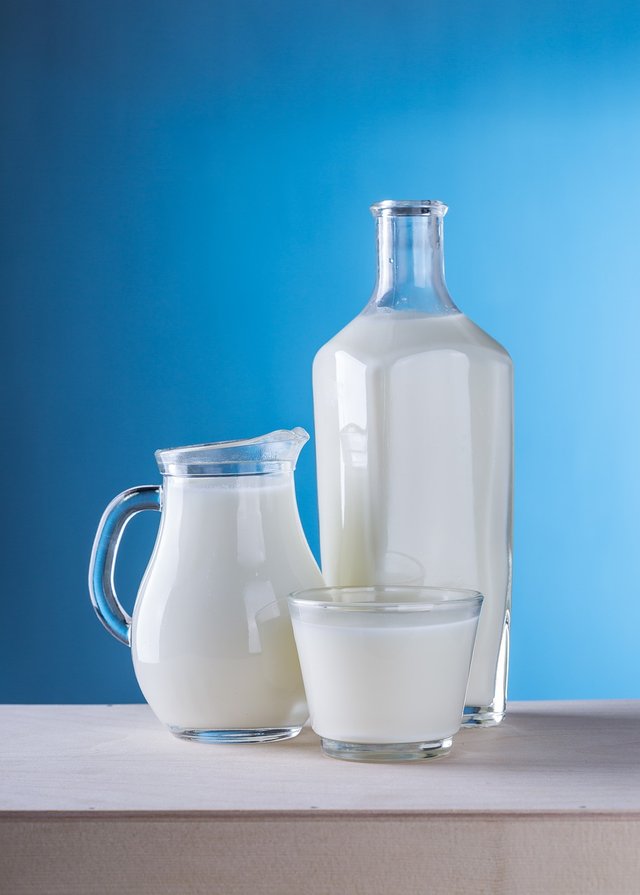When Can Children Drink UHT (ultra-heat treated) Milk?

UHT milk (ultra-heat treatment) is milk that has been heated at a high temperature of 138 degrees Celsius for at least two seconds. Heating is done so that bacteria in the milk die, thereby preventing the baby from getting infected and food poisoning. With this method also, shelf life of milk becomes longer, from 2-3 weeks to up to 9 months.
UHT Milk Content
Although heated with very high temperatures, the nutrients contained in UHT milk are the same as regular milk. There was no significant difference between the amount of fatty acids in UHT milk and the amount of fatty acids in ordinary milk. In fact, proteins in UHT milk are more easily utilized by the body when compared to proteins in whole milk and pasteurized milk
In addition, in the process of heating and storage for 90 days, no vitamin content is lost, ranging from vitamin A, vitamin B1 (thiamine), vitamin B2 (riboflavin), vitamin B5 (pantothenic acid), vitamin B7 (biotin), beta carotene, to nicotinic acid. While the content of vitamin B6, vitamin B12, and vitamin C in UHT milk will be reduced slightly during the heating and storage process. Only DHA is completely lost when milk is heated, but this can be overcome by adding DHA afterwards.
In addition to various nutritional content of the above, UHT milk has its own convenience and comfort for the mother. UHT milk is very practical to carry anywhere without the need to think about bringing a bottle of milk or hot water. This type of milk is also easy to store and generally has packaging that is designed to maintain the nutritional quality in UHT milk.
The Right Time Gives UHT Milk to Children
When Little is 1-6 months old, breast milk is the best food and drink. Even the World Health Organization recommends to exclusively breastfeed babies at that age. If breast milk production is inadequate or has a particular medical condition that causes no breastfeeding, the mother may provide formula milk instead. Of course after consultation with the pediatrician first.
UHT milk may be introduced to Little One when she is 6 months old, but not as a milk substitute or main drink. UHT milk may only be administered in small quantities as an additive in Small Diets. New UHT milk really should be given when the age of Little has been one year. With notes, Little has no milk allergy.
Type of UHT milk given to children aged 1-2 years recommended a full cream. Full UHT milk full cream felt more able to meet the needs of vitamins and minerals to grow kembangsempurna baby. After entering the age of 2 years, then Little Can be introduced to semi-skimmed milk gradually, provided that the food consumed varied and balanced nutrition, and Little Person grow and develop well.
The type of milk that is also not feasible given to infants under 1 year is sweetened condensed milk. It is also not advisable to provide skim milk or milk containing only 1% fat, if the age of Little is still below 5 years. Both types of milk do not contain enough calories and other essential nutrients needed by children at that age.
When Little is 1-3 years old, she needs about 350 mg of calcium per day. The amount can be met by drinking about 300 ml of milk, or equivalent to 1 glass of milk. Calcium is very important to build strong bones until he matures. Fulfill the completeness of nutrition Every day with full cream UHT milk devoted to the child.
Posted from Air Clinic Healthcare App. Download Android!
Authored by @Andravasko
Let me include this,
For nursing mothers, breastfeeding (feeding the baby with the mother's breast) is compulsory for your infant. In the first six month, exclusive breastfeeding is neccesary (feeding the baby only breastmilk), then you can continue brestfeeding with other foods till atleast 1 yr or maybe 2yrs... Also, there is also an age bracket tagged on each milk in the market, pls ensure you buy the one within your infant age range...
... For adults, i want to advise us to stay away from unpasteurized milk. Raw milk and its products (e.g. wara, nunu) as sold in sub-saharan africa is very unhygienic for our health. This is because Boiling alone as done on these milk products is not enough to eliminate the harmful bacteria in this milk. This raw and processed milk from cows, goats or cattles are unpasteurized milk and can carry dangerous bacteria such as Salmonella, E. coli, and Listeria, which are responsible for causing numerous foodborne illnesses.
Drink milk that is commercially sold and approved by appropriate organisations under ethical standards.
Drink only Pasteurized milk.
Kudos to @air-clinic for sharing this vital information
Nice addition to the discussion. Thank you!💝
Quite informative. Am not a parent so it's a little above my pay grade but the info is definitely one I'll be needing
Save the info somewhere for future use!
This is so educative and informative .....! Bravo! @air-clinic. This is worth resteeming
This is so educative and informative .....! Bravo! @air-clinic. This is worth resteeming